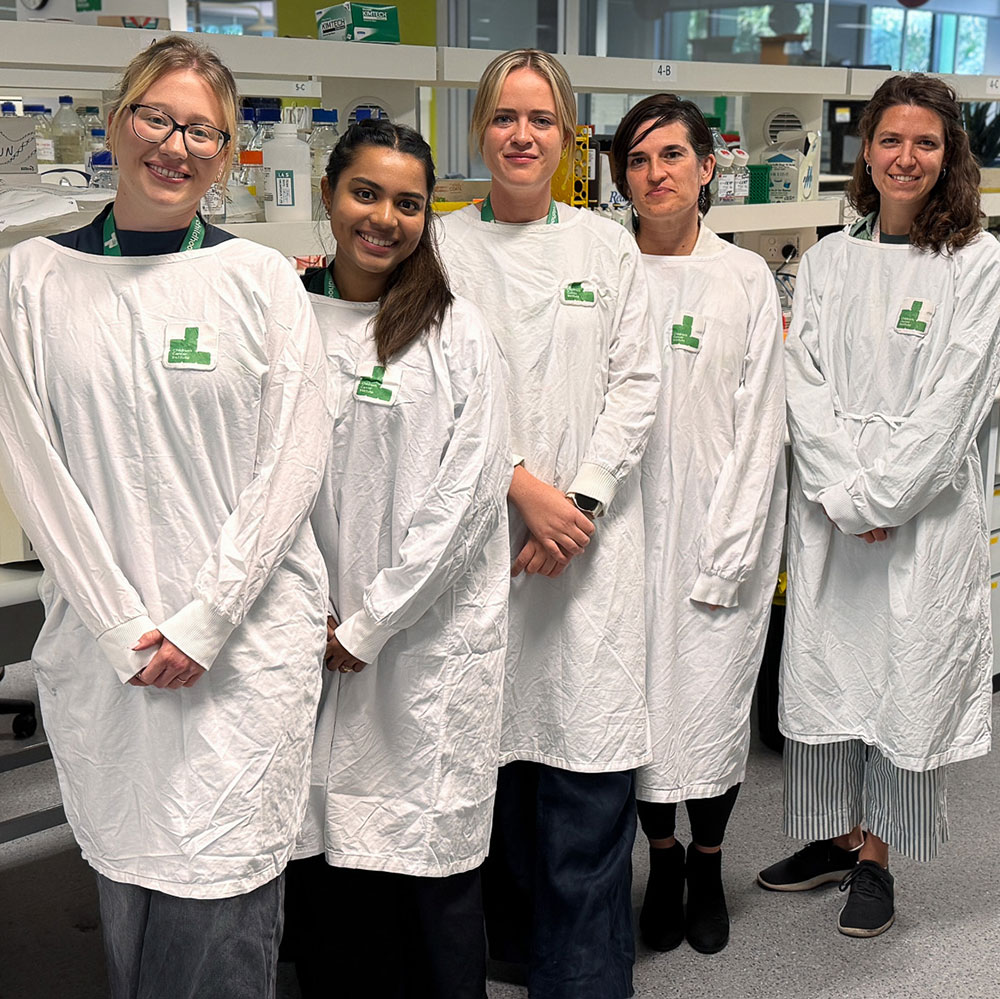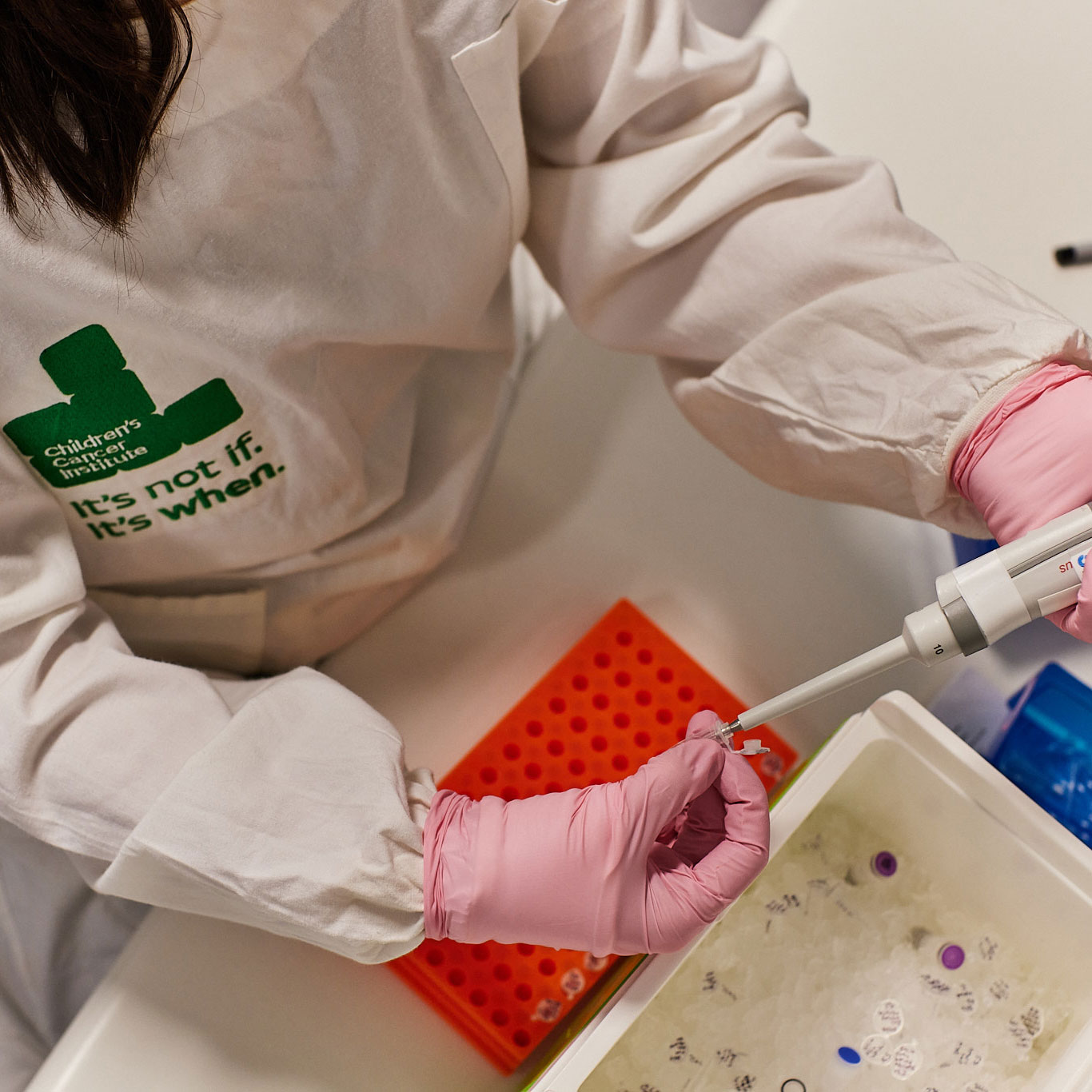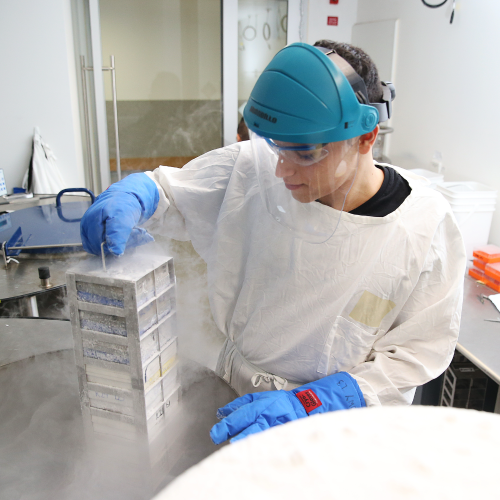In this blog − the first of a series looking at rapidly-evolving areas within childhood cancer research − we look at the exciting world of epigenetics. What is it, what are we doing in our labs, and what might it mean for kids with cancer? Read on to find out.
What is epigenetics?
Not so long ago, cancer was thought to be a genetic disease − a disease caused by abnormalities in our genes. Then it was discovered that epigenetics also plays a major role.
To understand the meaning of the word epigenetics, it helps to know the meaning of it two components: epi and genetics. The prefix epi comes from the Greek word for ‘above’ or ‘on top of’. The word genetics refers to the study of genes.
Epigenetics is the study of factors outside of (‘above’) genes that influence how those genes behave – for example, factors that act to switch the genes on or off. Using the analogy of a book, genes might represent words, while epigenetics represents how those words are actually read.
Epigenetics and cancer
When a cell becomes cancerous, it can be due to an abnormality in its DNA − a genetic mutation. However, it may also be due to an abnormality that is not in the actual DNA, but in how the DNA is ‘read’ or interpreted by the cell – an epigenetic mutation. Or it could be both.
In fact, recent advances in cancer research show that genetic and epigenetic mutations in cancer cells generally work together to promote the growth and development of the cancer.
One thing that makes epigenetics particularly exciting for cancer researchers is that, unlike genetic mutations, epigenetic mutations are potentially reversible. This raises the enticing prospect of designing therapies that are capable of reversing epigenetic alterations and returning a cell to normal.
Our epigenetics research
In January 2020, Children’s Cancer Institute established a new research group focusing on epigenetics: the Cancer Epigenetic Biology and Therapeutics Group. Headed by Dr Fa Valdes Mora, the group is working on understanding epigenetic mutations in childhood cancer, with the aim of developing effective epigenetic-based therapies.
“I’ve been working for more than 10 years on cancer epigenetics,” says Fa. “I’ve shown that once we understand how a particular epigenetic factor works in cancer, it is possible to develop a specific drug to target it.”
As it turns out, epigenetics may be even more relevant in childhood cancer than in adult cancer. Fa explains: “In adult cancer, many genetic mutations are known to be drivers of the disease. But in childhood cancer, the rate of genetic mutation is actually quite low, and epigenetics appears to play a greater role.”

Epigenetics and Zero Childhood Cancer
Fa’s group, which is part of our Personalised Medicine theme, works closely with the Zero Childhood Cancer Program (ZERO). When a child with cancer joins the ZERO national clinical trial, a sample from their tumour is sent to our labs where it is subjected to comprehensive analysis. Part of this analysis involves looking at the epigenetics of the tumour, to determine what is referred to as its ‘epigenomic profile’.
Fa explains: “An important part of my team’s work is to classify the tumours of children taking part in ZERO, based on their specific epigenomic profile. If we can understand the epigenetic alterations that are driving a child’s cancer, then we can potentially use that information to develop an epigenetic-based strategy for treating that child.”
Taking epigenetics further
As well as working on new therapies, Fa is also keen to find ways of using newly emerging technology to learn more about the epigenetics of cancer.
“One of my passions is developing new technologies to help us understand epigenetics in more depth,” she says. “For example, I’m working on single cell genomics, which involves analysing individual cells within a tumour. This allows us to build very detailed information about the cancer.”
Fa believes that epigenetics holds the key to understanding what is known as the ‘tumour microenvironment’ – the cells that surround a tumour. She explains: “Cancer cells don’t work alone. They need the cells around them to help them grow and spread. These cells around tumours don’t have mutations − they change through epigenetics. To treat cancer effectively, you need to target both the cancer cells and the tumour microenvironment.”
As time goes by, we are likely to hear the word epigenetics more and more. Epigenetics research is definitely going places… so watch this space!














